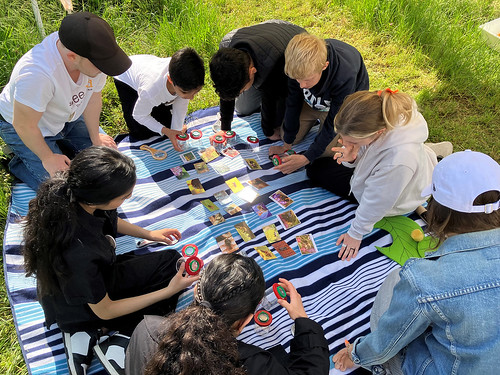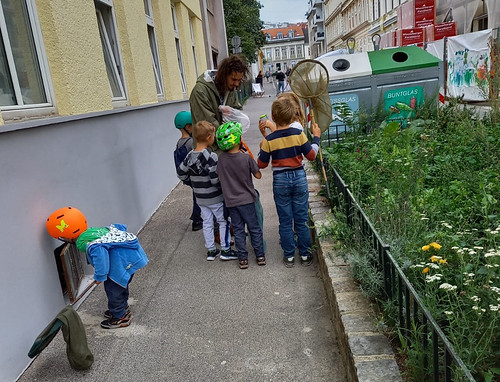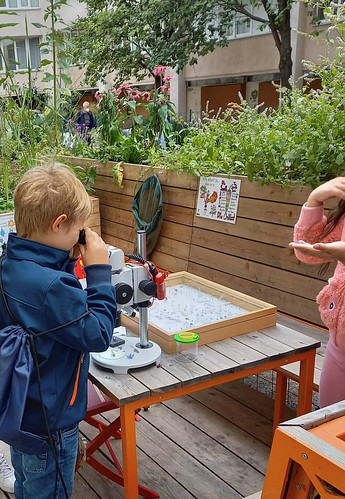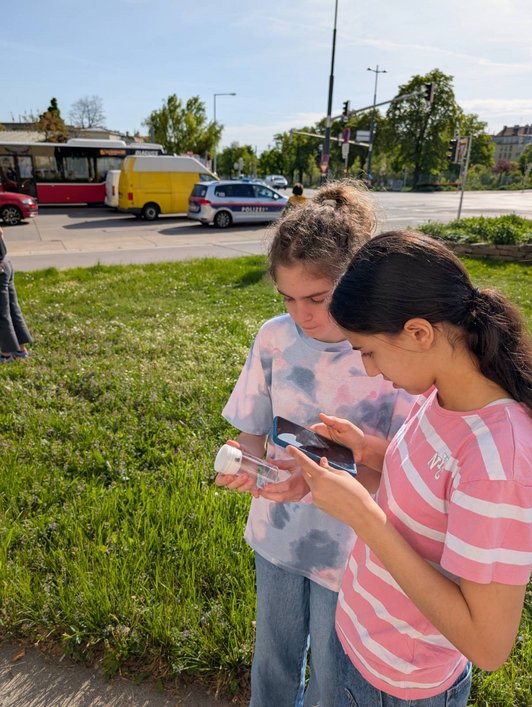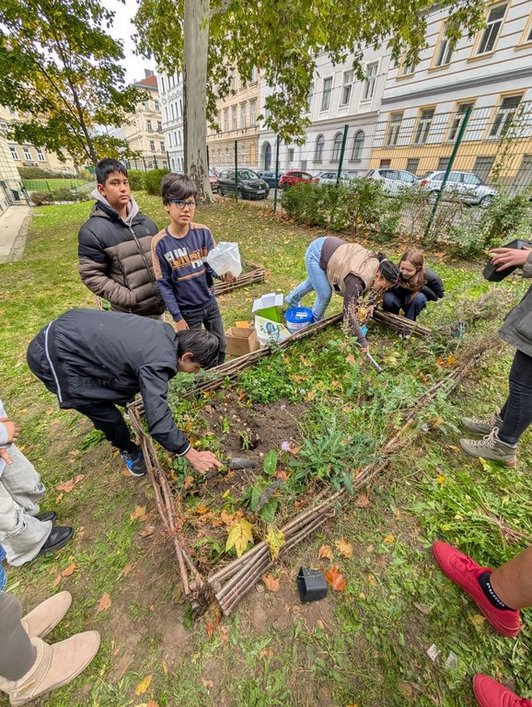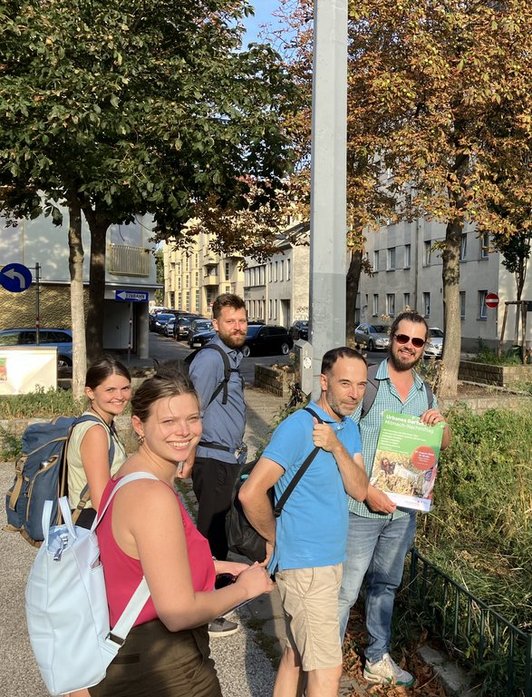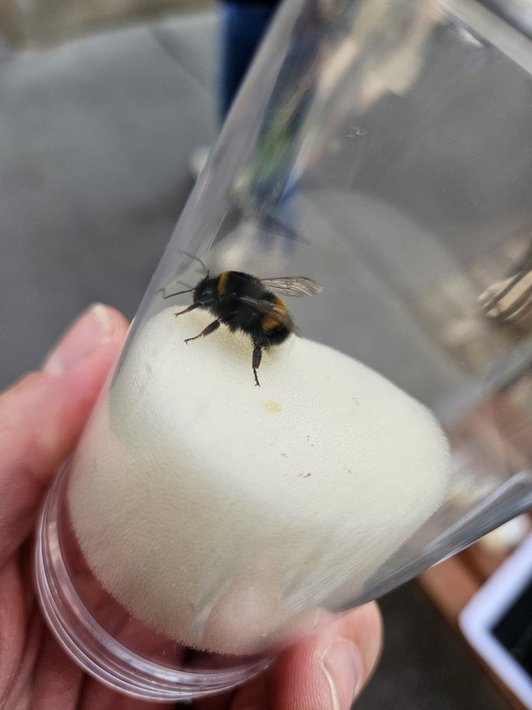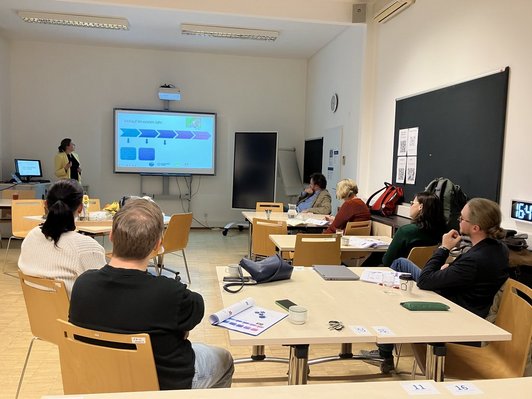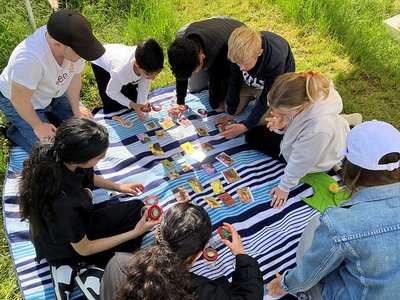BiodiverCITY-Island Hopping
Creating and exploring biodiversity islands in the city for action-oriented learning
Biodiversity is the basis of our lives. Insects play a crucial role: they provide important pollination services for plants and are a food source for many animals. In light of the current dramatic decline in insect population as a result of the global biodiversity crisis, the project "BiodiverCITY-Island Hopping" is dedicated to the promotion and research of insect biodiversity in Vienna. The focus is on flower-pollinating insects (e.g. bees, butterflies and flies), which are essential for the survival of plants and for human nutrition. Many of them, including many wild bees, can only fly a few hundred meters before they need nectar again.
Together with students from five Viennese schools, fallow areas in Vienna (e.g. around city trees) are being planted with insect-friendly plants and transformed into "biodiversity islands". These can be used by insects as "refueling stations". Such "stepping stones” also connect habitats and promote the genetic exchange of animals and plants. This ensures the survival of native species. The resulting flower islands will extend the existing "Vienna Biodiversity Corridor", especially in densely built-up areas.
Together with experts from the University of Vienna and the Natural History Museum, students will carry out "insect monitoring" in these areas to find out which species occur there. Results will help to answer research questions relevant to insect conservation and floral ecology. Also, it will be investigated whether participation in this project increases the students' own connectedness to nature, their interest or awareness of plants and insects. In addition, new Biology teaching materials will be developed to promote students' insect conversation competence. The sustainability of the project will be ensured by embedding it in the pre-service and in-service teacher training. Together with the scientists, students will also develop recommendations for insect conservation, which will be made available to the City of Vienna and the general public. At the newly created biodiversity islands, information panels will highlight the importance of a diverse plant and insect world and provide tips on how everyone in the city can contribute to the protection of biodiversity. After all, the blooming 'neighborhood oases' also improve the quality of life for the people of Vienna.
The project team can be contacted at the following e-mail address: biodivercity.zlb@univie.ac.at
 Schools
Schools
 Partners from Economy and Society
Partners from Economy and Society
 Scientific institutions
Scientific institutions

